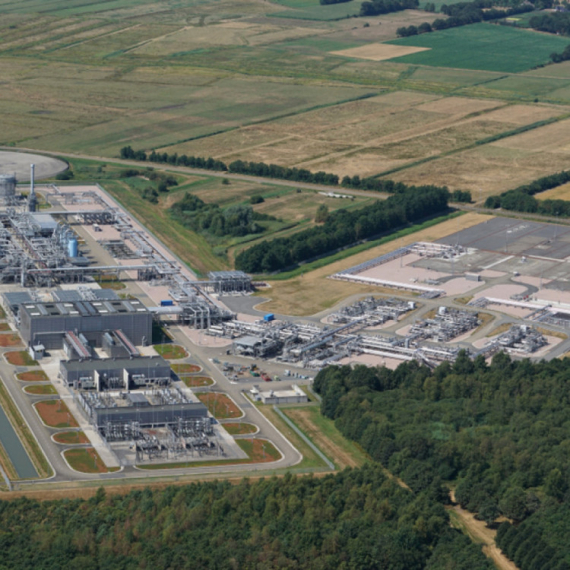"Situation alarming in K. Serb villages"
Serbs from the villages in the Gnjilane area have blocked a local road for an hour today, protesting against power cuts.
Sunday, 01.02.2009.
18:01

Serbs from the villages in the Gnjilane area have blocked a local road for an hour today, protesting against power cuts. A Kosovo company in charge of electricity has refused to repair the Gornje Kusce-Gnjilane line unless residents in the area signed a contract on payments. "Situation alarming in K. Serb villages" Some 700 families have for this reason undergone agony for the past eight days. An emergency team set up to deal with the situation describes it as very alarming, and announces further protests. "Most residents get their water via a pump from a well, and when there's no power, there's no water. The switchboard telephone batteries are empty, phones have been cut for three days. Around 2,000 children are not attending school, one has already been infected with hepatitis, sewers are clogged. Horrible!", Slavisa Antic of the emergency team described the situation. Most of the villages' residents have no income, but Kosovo Albanian authorities want each household to pay EUR 60 for electricity spent in the past three months and sign contracts. The Serbs, and the Ministry for Kosovo, reject this as unacceptable. "The contract does not contain only a technical detail, but it implicitly imposes a recognition of Kosovo. Negotiations on the six-point plan should take place as soon as possible with infrastructure and power supply topping the agenda. We have proposed a separate company to be formed in order to deliver electricity to the Serb communities, but this has not met with understanding so far," State Secretary with the Ministry for Kosovo Zvonko Stevic said. This official also stated that Serbs participate with five to seven percent in the overall electricity bills in Kosovo, and believes the current crisis is in fact pressure against them to leave the area.
"Situation alarming in K. Serb villages"
Some 700 families have for this reason undergone agony for the past eight days.An emergency team set up to deal with the situation describes it as very alarming, and announces further protests.
"Most residents get their water via a pump from a well, and when there's no power, there's no water. The switchboard telephone batteries are empty, phones have been cut for three days. Around 2,000 children are not attending school, one has already been infected with hepatitis, sewers are clogged. Horrible!", Slaviša Antić of the emergency team described the situation.
Most of the villages' residents have no income, but Kosovo Albanian authorities want each household to pay EUR 60 for electricity spent in the past three months and sign contracts. The Serbs, and the Ministry for Kosovo, reject this as unacceptable.
"The contract does not contain only a technical detail, but it implicitly imposes a recognition of Kosovo. Negotiations on the six-point plan should take place as soon as possible with infrastructure and power supply topping the agenda. We have proposed a separate company to be formed in order to deliver electricity to the Serb communities, but this has not met with understanding so far," State Secretary with the Ministry for Kosovo Zvonko Stević said.
This official also stated that Serbs participate with five to seven percent in the overall electricity bills in Kosovo, and believes the current crisis is in fact pressure against them to leave the area.










































Komentari 17
Pogledaj komentare